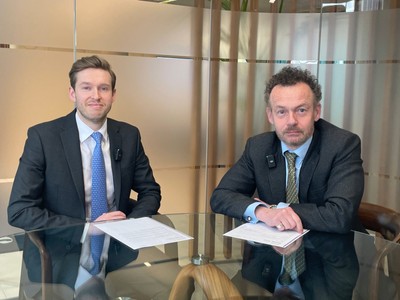We are witnessing a very dark moment in history and our thoughts are with the people of Ukraine. Clearly we all hope for a swift de-escalation of the conflict but at this stage it is very difficult to forecast what the endgame will be. It is clear that President Putin has an agenda for Ukraine, which has been years in the making, and so we will not be surprised if a full occupation of most of the country is carried out. How long the occupation lasts will be dependent, we believe, on how long it will take Russia to establish a pro-Russian government and whether the Ukraine people rebel against this forced measure. There is no doubt that geo-political risk will remain elevated now for some time as the West tries to put together a co-ordinated response to ensure the conflict is contained as far as possible.
Even before this week’s events it has been a very uncomfortable start to 2022 for investors, as rising inflation and forecast interest rate hikes have provided a headwind for equities, particularly the more growth orientated companies where we have the majority of our exposure on portfolios. This week’s events are likely to add to the inflationary pressures as commodity prices look to remain high and food prices are impacted due to both countries being large exporters of wheat and corn. I still forecast that overall inflation will decline as the year progresses, however it may fall back to around the 4% level rather our previous estimate of 3-4%.
Central banks will now have to consider the impact to growth estimates given the disruption of sanctions and the inflationary impact on consumers’ behaviour limiting their disposable income. It is worth saying the global economy is still growing at this stage and the US economy looks particularly strong still and so immediate concerns over an impending global recession are not founded at this time. If central banks limit their interest rate rises and inflation moderates through this year, then we can see a scenario that allows companies to navigate through the challenging conditions without too much impact to their profit margins.
This is particularly true of the majority of the companies that our investment managers look to own, which we term as ‘quality compounders’ that trade well through varying economic conditions. Earnings for these types of businesses remain fairly consistent as operating margins are protected from the effects of inflation and revenues continue to grow as their products and services remain in demand through the cycle. These companies have given up some ground this year as the effects of the increase of bond yields have depressed their market valuation, however as long term investors we are less concerned. A good business does not become a bad business overnight because the 10 year bond yield rises from 1% to 2% or due to a shocking invasion of another country from an aggressor.
What we are doing however is evaluating the impact of the events of the year so far and ensuring that portfolios are positioned appropriately for the more uncertain economic and geo-political environment we are facing and we will continue to scrutinise those businesses that may continue to struggle in a higher inflationary period. In times of market turmoil, whilst acknowledging the significant discomfort of seeing portfolio values pull back, a measured approach does ensure sensible decisions are made and we continue to focus on the longer term prospects for our positions.
John Royden, Head of Research
The views expressed in this article are those of the author. The value of investments and the income from them can go down as well as up and investors may not get back the amount originally invested. Past performance is not a reliable guide to future returns.



